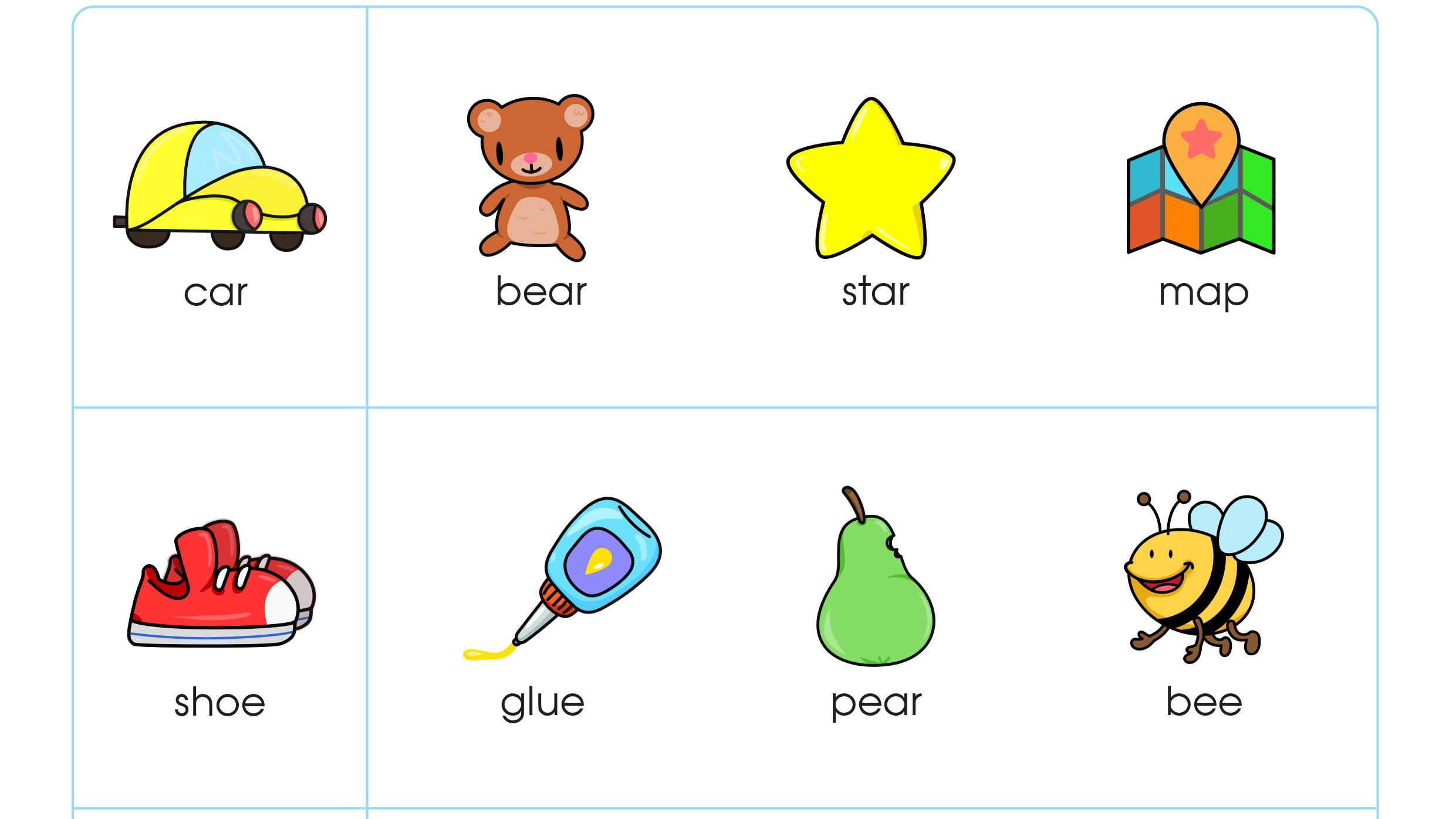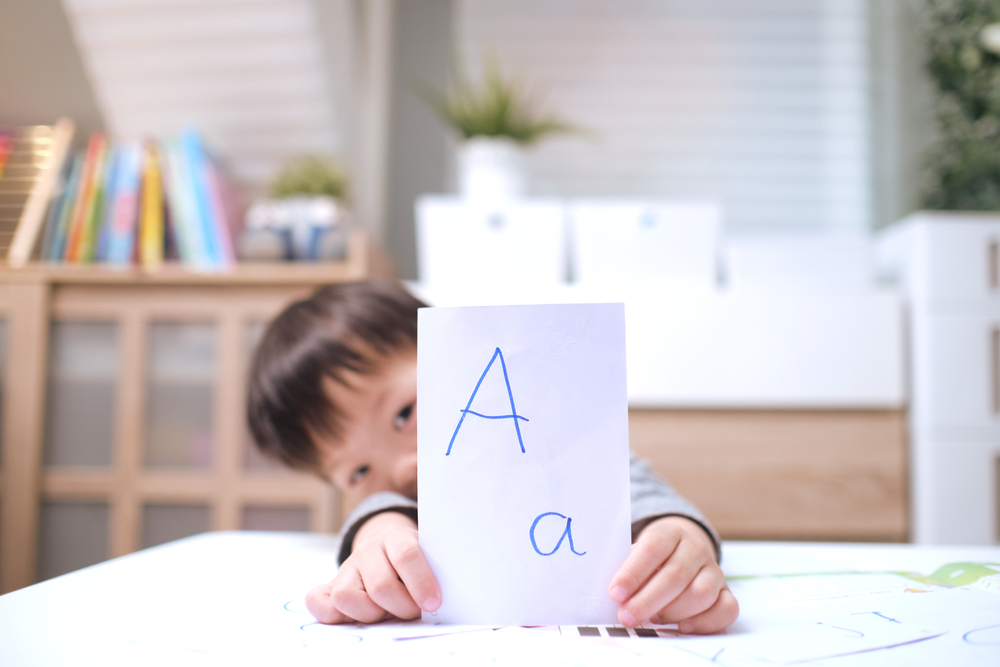Logical Reasoning Normal Reading Worksheets for Ages 6-8
10 filtered results
-
From - To
Discover an innovative collection of Logical Reasoning Normal Reading Worksheets for children aged 6-8. These engaging, age-appropriate worksheets from Kids Academy are designed to enhance young learners' logical thinking and reading comprehension skills. Through captivating stories, puzzles, and questions, children will develop the ability to identify patterns, make connections, and draw conclusions. Perfect for both classroom settings and at-home learning, these worksheets balance fun and educational value, making critical thinking an enjoyable adventure. Boost your child's cognitive growth and reading ability with our expertly crafted, easy-to-use resources. Start exploring today and open a world of logic-driven discovery!
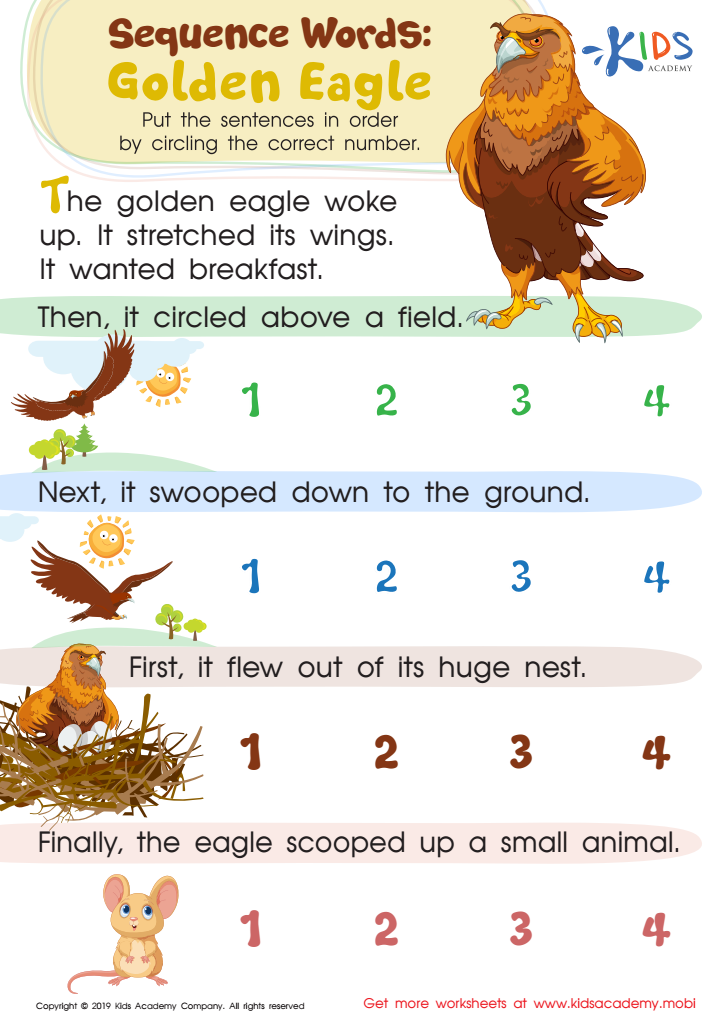

Sequence Word Eagle Worksheet
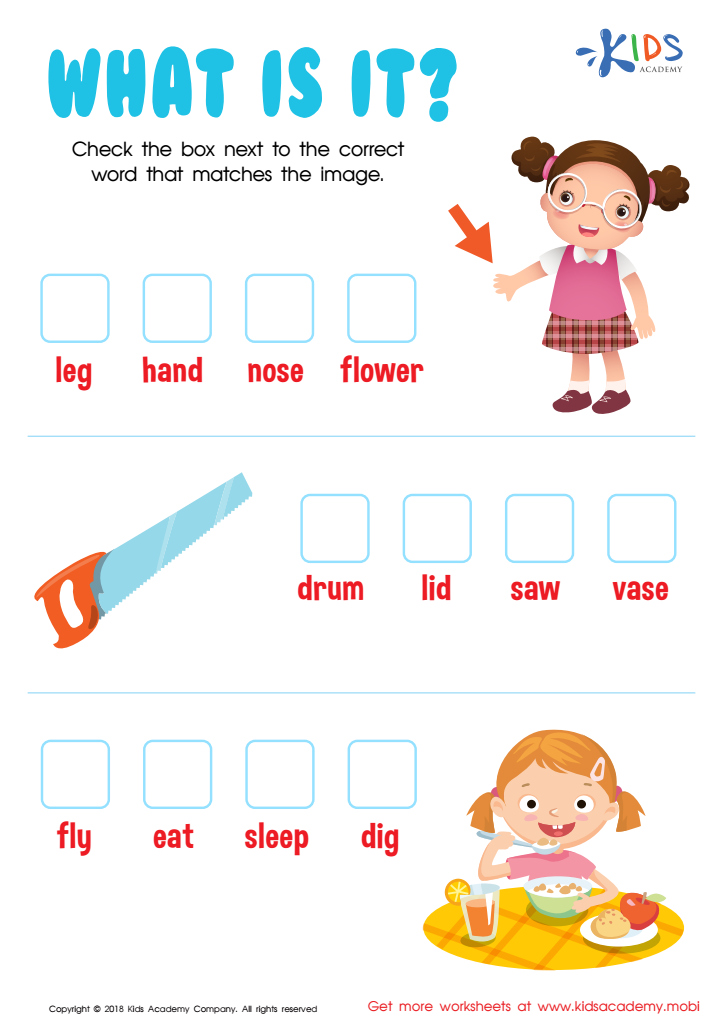

What Is It? Worksheet
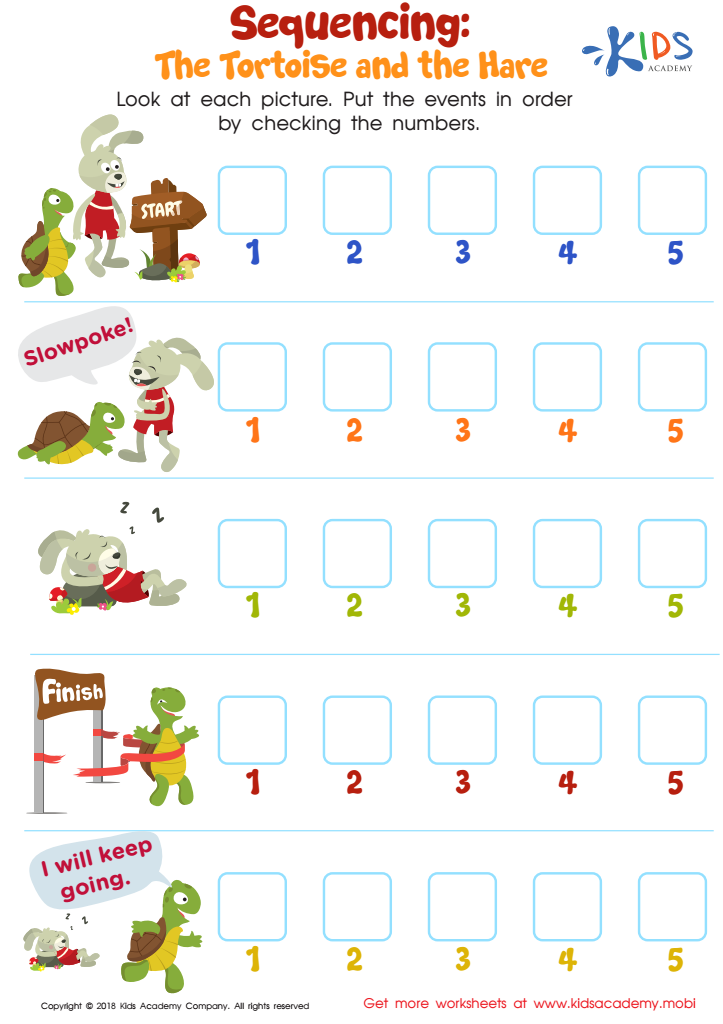

Sequencing: The Tortoise and the Hare Worksheet
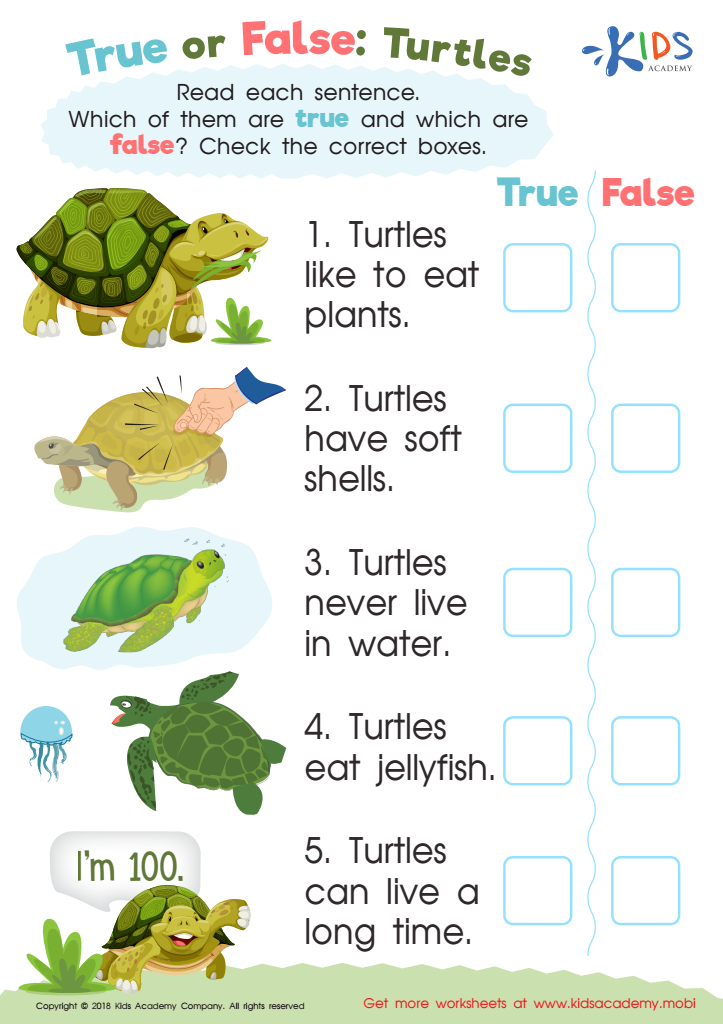

True or False: Turtles Worksheet
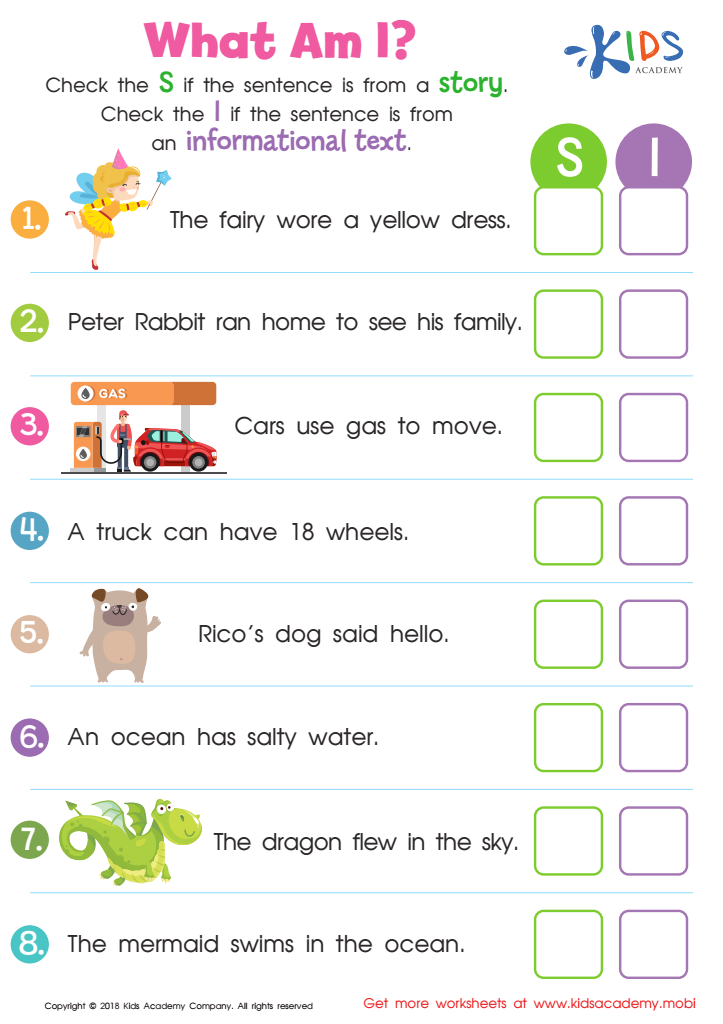

What Am I? Worksheet
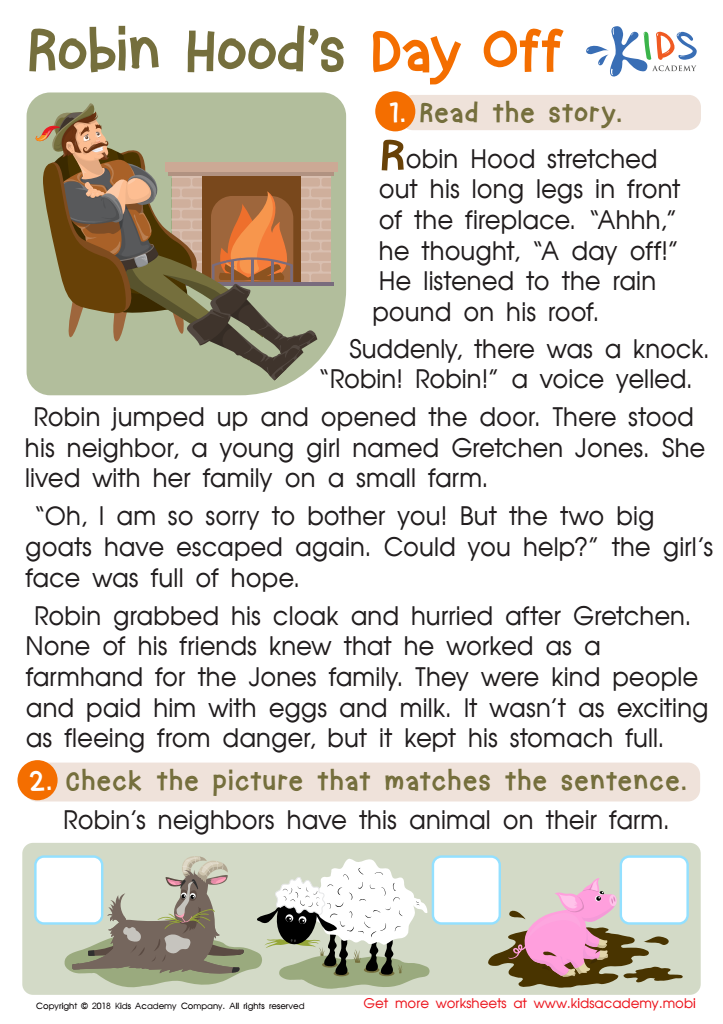

Robin Hood's Day Off Worksheet
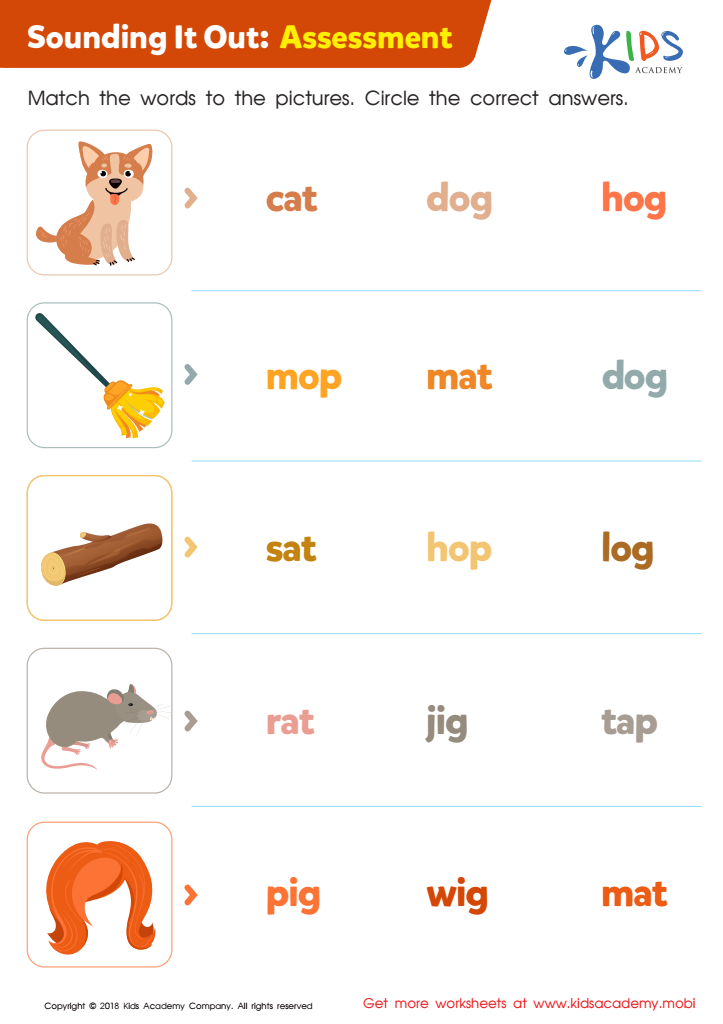

Sounding it Out: Assessment Worksheet
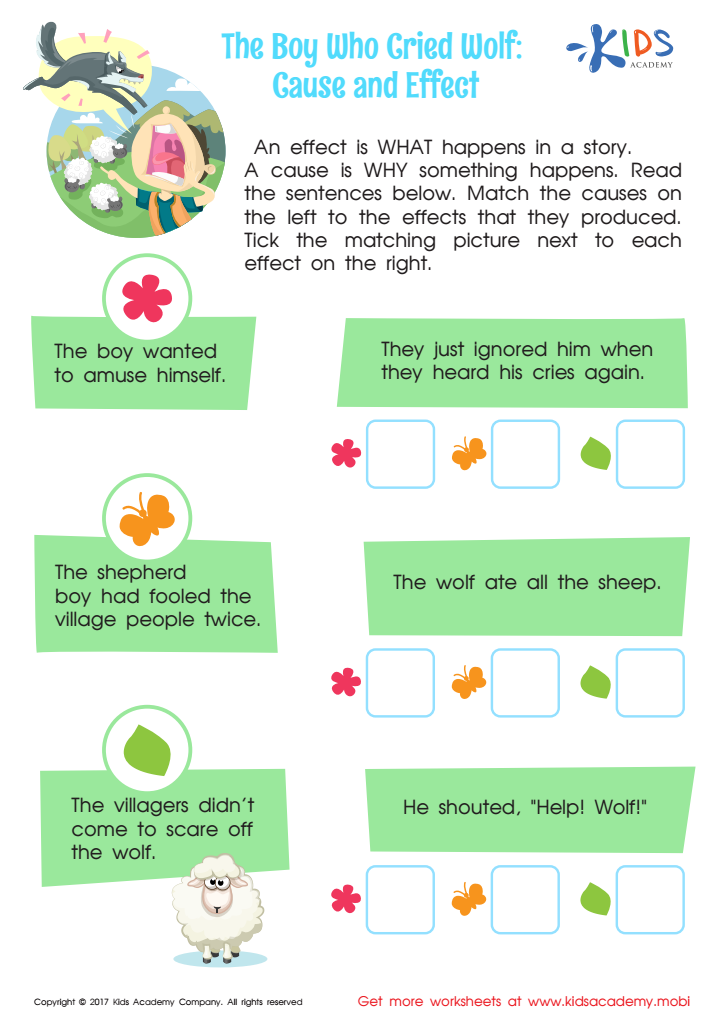

The Boy Who Cried Wolf: Cause and Effect Worksheet
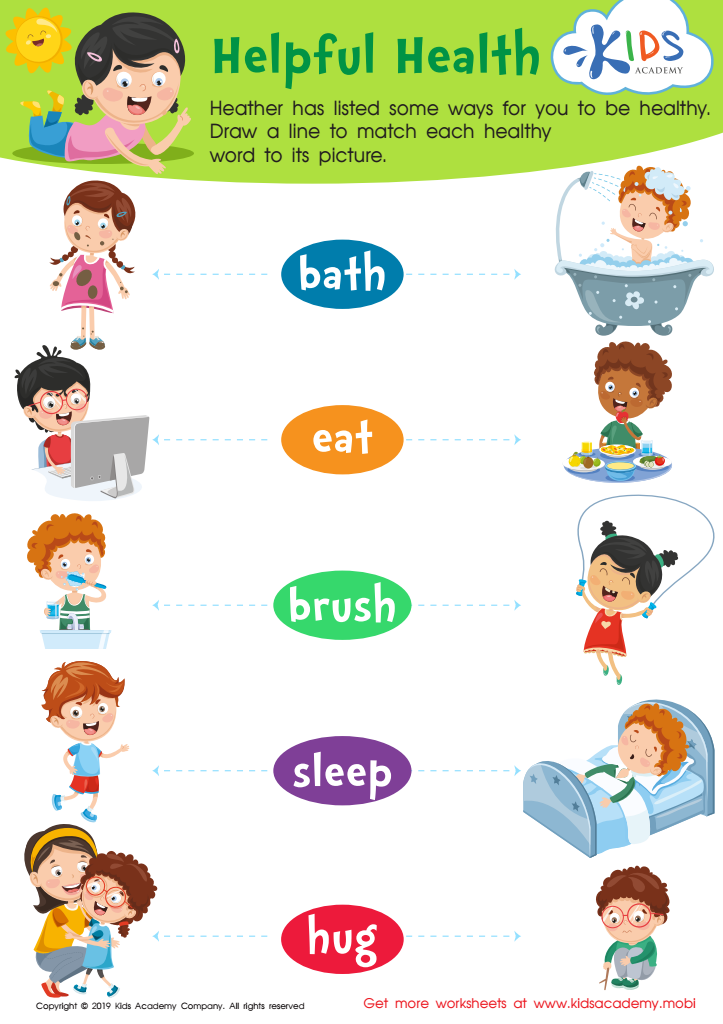

Helpful Health Worksheet
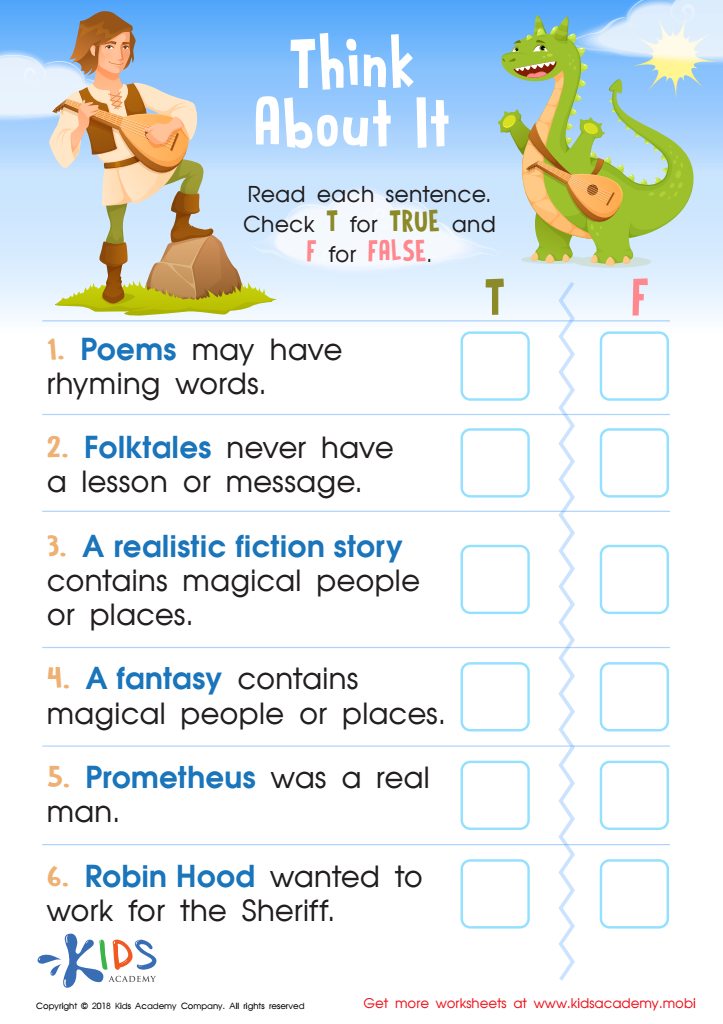

Think About It: Assessment Worksheet
Parents and teachers should care about developing logical reasoning and normal reading skills in children aged 6-8 because these foundational abilities play a crucial role in their overall cognitive development and academic success. Logical reasoning is essential as it enhances children's problem-solving skills and enables them to make sense of the world around them. It empowers young learners to analyze patterns, establish relationships between concepts, and draw reasoned conclusions, which are critical for their success in mathematics, science, and other disciplines.
Normal reading, on the other hand, is key to language proficiency and comprehension. At this age, children are transitioning from learning to read to reading to learn. Developing strong reading skills ensures they can decode written information fluently, grasp the meaning of texts, and expand their vocabulary. Good reading abilities support academic achievement and nurture a lifelong love for learning because they enable children to access and engage with a broad range of informational and imaginative content.
Balancing both logical reasoning and reading skills fosters independent thinking, curiosity, and confidence. By prioritizing these abilities, parents and teachers set the stage for children to thrive in future educational endeavors and in their everyday lives. This holistic approach prepares them to face complex challenges and become well-rounded individuals.
 Assign to My Students
Assign to My Students






